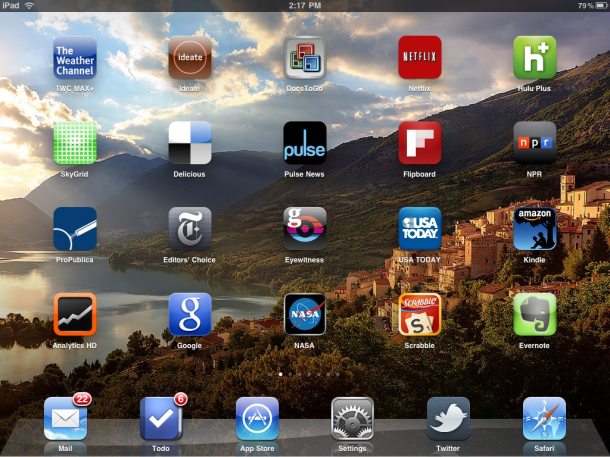Apple vs. Android tablets: Don't discount iPad's distribution power

Apple has made a lot of great moves with its iPad launch, but perhaps the most important one is retail distribution. Simply put, Apple has first mover advantage in the tablet market and is sealing the deal with distribution with a capital "D".
On Friday, Wal-Mart will begin selling the iPad to its masses. The iPad is already set for Amazon, Best Buy and Target as well as Apple's own stores of course. That distribution will play a critical role as Samsung and a bevy of others launch tablets.
In smartphones, Apple went with the exclusive retail strategy---its stores and AT&T as the sole carrier---and the iPhone was eclipsed in market share by an onslaught of Android devices.
But Apple is showing that the iPad is indeed the Mac for the masses. In fact, the iPad is more iPod when it comes to distribution than iPhone. If pricing becomes an issue, Apple now has the scale to move the needle lower if need be. From the looks of things though, Android tablets aren't going to really battle too hard on price.
Also: 
By my rough estimate, Android tablets---from Samsung or whoever---will have to be about $150 cheaper at the retail point of sale. Let's say you're at Target. You have a Samsung Galaxy Tab vs. the iPad. You're going for the cheapest Wi-Fi version. If the Samsung is $399 and the iPad is $499 the consumer is likely to pay the premium. Millions of people already own the iPad so it's a proven commodity. Here's where distribution comes in: The iPad will be next to any rival at major retailers.
If the Galaxy Tab---or any other comparable rival---comes in at $299 then you have a tougher decision. At $100, you're talking roughly two cases of Harp---or Guinness or whatever. If you can justify a price differential by cases of beer or a dinner out, Apple's pricing is good enough. That's why Android tablets have to be cheaper by a decent margin. Apple set the low end of the tablet market with a $499 price point.
Those predicting that there will be an Android tablet repeat of what's happening in the smartphone market may be mistaken. Apple has its distribution game down.